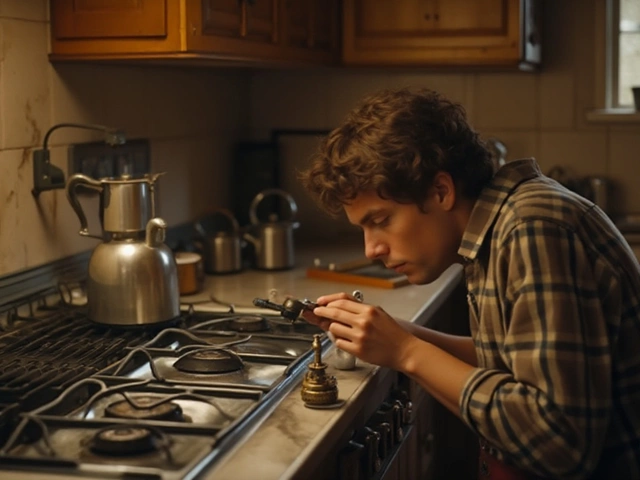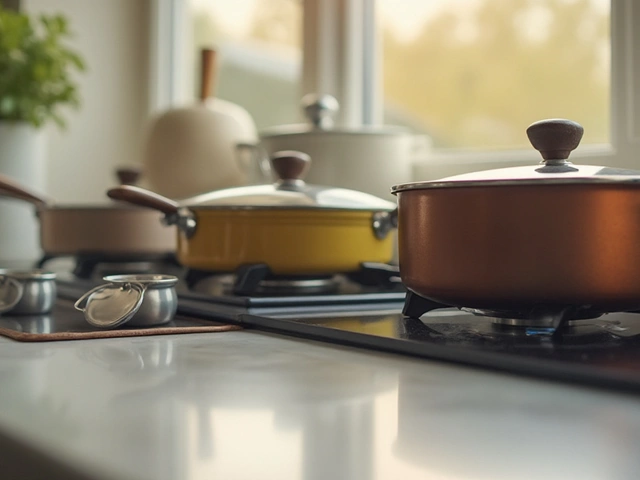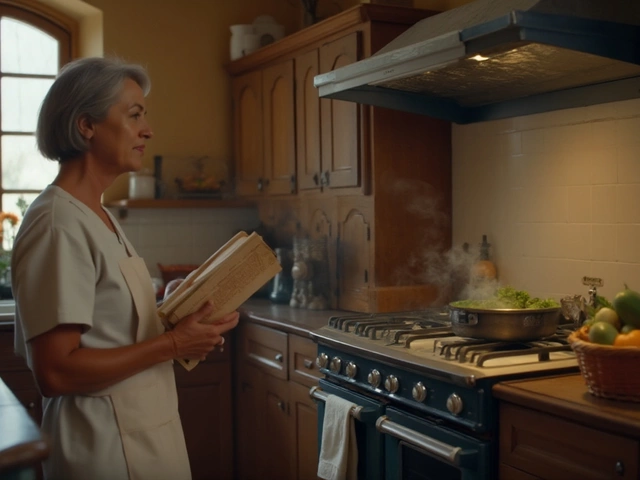If your cooker is giving you grief, you don’t have to call a pro for every little hiccup. Most oven and hob problems have a straightforward cause that you can spot in minutes. Below, we walk through the most common issues, what they usually mean, and how you can fix them yourself.
The first thing to check is the power supply. Make sure the cooker is firmly plugged in and that the circuit breaker hasn’t tripped. If the outlet works, look at the oven’s thermostat or temperature sensor. A faulty sensor will often cause the oven to stay cool even though the control knobs are set high. You can test the sensor with a multimeter – it should show around 1,000 ohms at room temperature. If the reading is way off, replace the sensor; it’s usually a cheap part.
Another common culprit is the heating element. In electric ovens, the element can crack or burn out over time. When you turn the oven on, you should see a faint orange glow on the element. No glow? Turn the oven off, let it cool, and inspect the element for any visible breaks or black spots. Swapping it out is simple: unscrew the mounting brackets, disconnect the wires, and fit the new element the same way.
Electric hobs suffer from similar problems. The most frequent fault is a bad burner element. Remove the burner cap, pull out the element, and look for any blistered or broken sections. If you spot damage, order a replacement that matches the model number and snap it back in place. Remember to turn off the power at the fuse box before you start.
If the element looks fine, the issue could be the control switch. Swapping a switch is a bit more involved but still doable with basic tools. Disconnect the power, remove the hob’s front panel, and locate the faulty switch – it will feel loose or show no resistance on a multimeter. Replace it with a matching part and reassemble.
Don’t forget to clean your hob regularly. Food residue can build up around the burners and cause uneven heating. A simple wipe‑down with a damp cloth and a non‑abrasive cleaner keeps the contacts clean and the heat consistent.
When you’ve gone through power, sensor, element, and switch checks, most cooker issues are resolved. If the problem persists, it may be a wiring fault inside the cooker’s cabinet, which is best left to a qualified technician.
By following these steps you can often save time and money, and you’ll know exactly what to tell a professional if you still need one. A quick visual inspection, a multimeter test, and a few basic parts usually do the trick.

If your cooker suddenly stopped working, it might be due to a range of reasons from electrical issues to simple user errors. Understanding the root cause is key to fixing the problem efficiently. In this article, we explore common reasons why cookers fail and offer practical troubleshooting tips to get your appliance working again. From checking the power supply to examining electrical components, we cover it all. Get your cooker back up and running with our straightforward guide.

Struggling with a troublesome boiler? Discover the most frequent issues like lack of heat, strange noises, and leaking water. Learn practical tips and tricks on how to diagnose and fix these problems on your own. Recognize when it's time to call a professional and keep your home warm and comfortable.

Gas cooktops are an essential part of the modern kitchen, but like all appliances, they can encounter problems over time. This article provides valuable tips and tricks on how to diagnose and repair common gas cooktop issues such as faulty igniters, uneven flames, and gas leaks. With useful insights and step-by-step guidance, even the least experienced DIY enthusiasts can potentially save money and extend the lifespan of their cooktops. If the repairs are too complex or safety is at risk, it is always advisable to seek professional assistance.

Repairing a glass hob is an essential task for maintaining a functional and modern kitchen. The cost of fixing a glass hob can vary greatly depending on the damage's severity and the required repair type. This article delves into the various factors influencing repair costs, from crack treatment to replacement solutions. It also provides tips for maintenance to prolong the lifespan of your hob and prevent future damage.

An electric oven is a kitchen essential that brings culinary magic to life, but sometimes it can start showing signs of wear and malfunction. If you notice uneven cooking, strange noises, or the oven simply won't heat, these could be indicators of a problem needing repair. Knowing the common signs can help you determine if troubleshooting is possible or if it's time to call a professional. From the thermostat issues to faulty heating elements, this guide provides insights into recognizing and addressing potential oven problems.

Ever got frustrated with cold showers while waiting for your hot water heater to get fixed? This article breaks down how long it really takes to repair different types of water heaters, from common issues you can fix yourself to problems that call for a pro. You'll learn what affects the repair timeline, plus some quick tips to speed things up. No more second-guessing if you’ll be stuck with icy water all day. Get the facts so you can plan around your next repair.